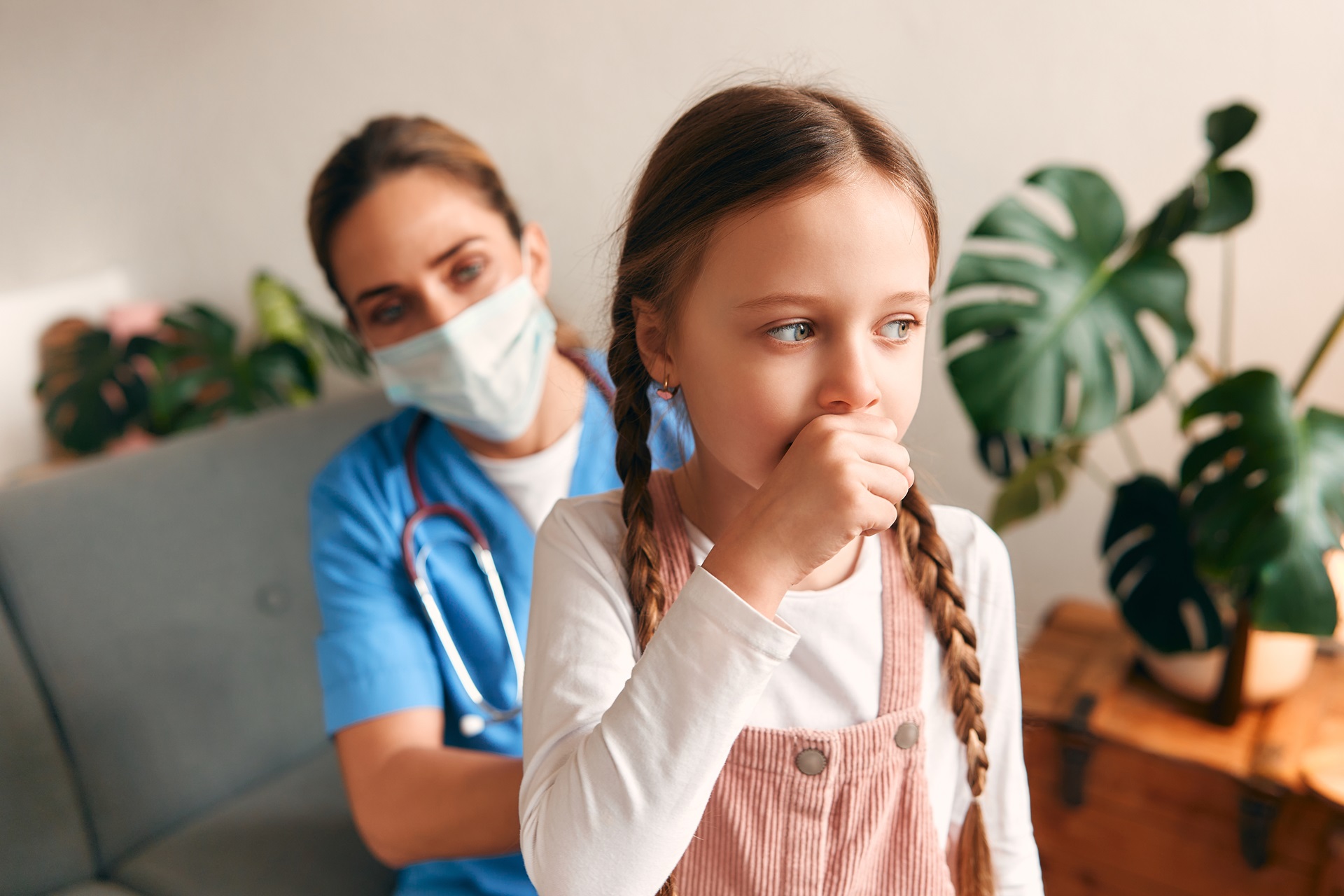Is It Asthma To My Child? | Dr. Vinit Mehta, MD Pediatrician
Understanding About Asthma to Child
Asthma is one of the most common chronic respiratory conditions in children. Parents often find it difficult to differentiate between a simple respiratory infection and asthma. If your child frequently experiences coughing, wheezing, or difficulty in breathing, it may be time to consider the possibility of asthma. Consult at Aashrey Child Clinic, to know more about Asthma to child.


Common Symptoms When Asthma to Child
- Intermittent Dry Coughing – Persistent, non-productive cough that may worsen at night or with physical activity.
- Expiratory Wheezing – A high-pitched whistling sound while exhaling.
- Shortness of Breath – Older children may complain of breathlessness, while younger children may appear tired after mild exertion.
- Chest Tightness or Congestion – Children may report discomfort in the chest, particularly during nighttime or after exercise.
- Increased Symptoms at Night – Asthma symptoms can intensify at night due to airway inflammation.
- Triggers: Exposure to allergens, infections, cold air, exercise, or even laughing can provoke symptoms.
How is Asthma Diagnosed in Children?
Asthma diagnosis in children is primarily based on clinical history, symptoms, and response to bronchodilator therapy.
- Medical History: A history of allergic rhinitis, eczema, or parental asthma increases the likelihood of childhood asthma.
- Physical Examination: In between exacerbations, physical findings may be normal, but during an attack, wheezing and labored breathing are evident.
- Response to Medication: Improvement in symptoms after using a short-acting inhaled beta-agonist (SABA), such as albuterol, supports the diagnosis.
- Lung Function Tests: For children over five years, spirometry can be performed to evaluate airflow obstruction.
- Environmental Assessment: Identifying allergens and triggers plays a key role in asthma management.
What Triggers Asthma in Children?
Asthma symptoms can be triggered by numerous environmental and physiological factors, including:
- Respiratory Infections: Viruses like rhinovirus, respiratory syncytial virus (RSV), influenza, and bacterial infections.
- Airborne Allergens: Dust mites, pollen, mold, pet dander.
- Irritants: Cigarette smoke, air pollution, strong odors, household chemicals.
- Exercise: Physical exertion can induce bronchoconstriction.
- Weather Changes: Cold, dry air or sudden temperature shifts.
- Emotional Factors: Stress and intense emotions like crying or laughing can trigger an attack.
Risk Factors for Asthma to Child
Children with the following risk factors are more likely to develop asthma:
- Family History: A parent or sibling with asthma.
- Allergic Conditions: Presence of allergic rhinitis, eczema, or food allergies.
- Premature Birth: Low birth weight or neonatal intensive care unit (NICU) stay.
- Exposure to Secondhand Smoke: Increases the risk of asthma and worsens symptoms.
- Frequent Respiratory Infections: Recurrent lung infections in infancy can lead to airway inflammation.
- Risk Factors for Childhood Asthma (Internal link)
How is Childhood Asthma Treated?
1. Long-term Control Medications
- Inhaled Corticosteroids (ICS): Budesonide, Fluticasone – Reduce airway inflammation.
- Leukotriene Receptor Antagonists (LTRA): Montelukast (Montair LC) – Prevent airway narrowing.
- Long-acting Beta-agonists (LABA): Salmeterol, Formoterol – Used in combination with ICS for persistent asthma.
2. Quick-relief Medications
- Short-acting Beta-agonists (SABA): Levalbuterol (Levolin) – Provides rapid relief during an asthma attack.
- Oral Corticosteroids: Used in severe cases to reduce inflammation.
3. Non-medical Measures
- Avoiding Triggers: Identifying and reducing exposure to allergens.
- Regular Physical Activity: Helps in lung function improvement.
- Breathing Exercises: Techniques like pursed-lip breathing to control asthma.
When to Seek Emergency Care?
Immediate medical attention is required if:
- Your child struggles to breathe or speaks in short phrases.
- Lips or nails turn bluish.
- Symptoms worsen despite medication use.
- The child experiences severe drowsiness or confusion.
📞 Call Now: +918347990180
Frequently Asked Questions (FAQs)
1. Can my child outgrow asthma?
Some children experience a reduction in symptoms as they grow older, but asthma is a chronic condition that requires long-term management.
2. Is it safe for my child to play sports?
Yes! With proper asthma management and precautions, children can safely participate in sports.
3. What is the role of inhalers in asthma treatment?
Inhalers deliver medication directly to the lungs, providing quicker relief with fewer side effects than oral medications.
4. How often should my child see a doctor for asthma management?
Regular follow-ups every 3–6 months are recommended to monitor asthma control and adjust treatment if necessary.
External Resources
For expert consultation on childhood asthma treatment in Vadodara, visit Dr. Vinit Mehta, MD Pediatrician at Aashrey Child Clinic.
Google Maps Guide to Aashrey Child Clinic: Aashrey Child Clinic Location
📍 Aashrey Child Clinic (Pediatric clinic in New Sama)
First Floor, 22, Gyankunj Society-2, above Muthoot Fincorp Gold loan, next to Ajay’s Takeaway food, Near Abhilasha Char Rasta, Raghuvir Nagar, Gyan Kunj II, New Sama, Vadodara, Gujarat 390024.
📞 Call Now: +918347990180
